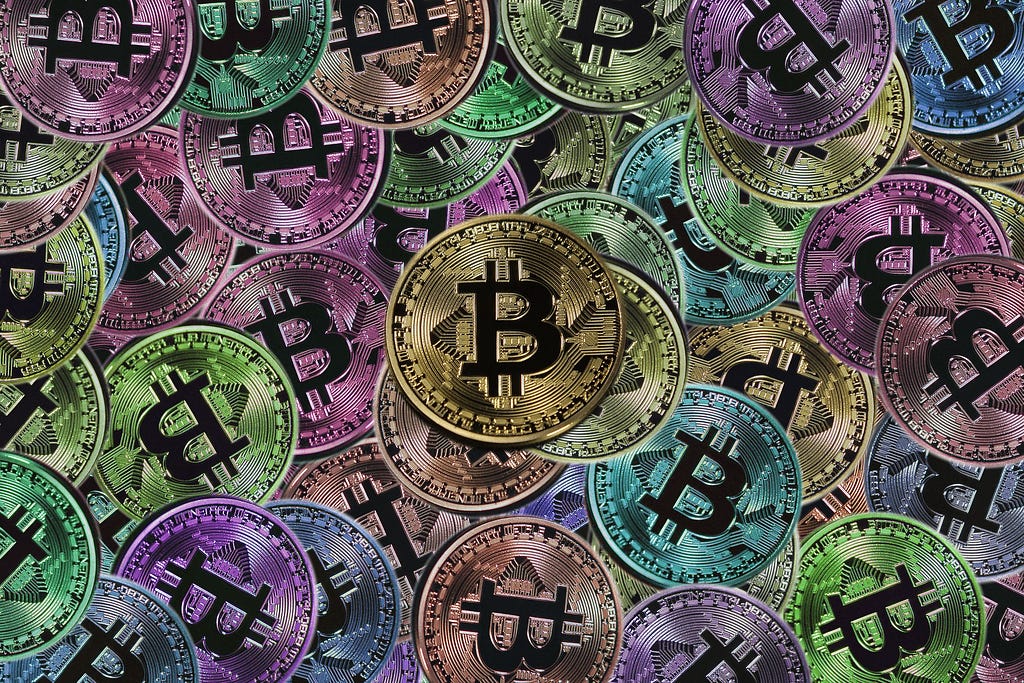Latest news about Bitcoin and all cryptocurrencies. Your daily crypto news habit.
Did you know that people lost over $532 million in cryptocurrency-related scams over only the first few months of 2018? Now you do! [source]
 This is the image I found when looking for “Cybercriminal”. These guys are usually much, much scrawnier.
This is the image I found when looking for “Cybercriminal”. These guys are usually much, much scrawnier.
There are countless ways to lose money in this industry, from bad investment strategies to getting bamboozled by financial predators. I’ve had the opportunity to interact with dozens of people in Blockchain and Crypto, both legitimate businessfolk as well as the baloney peddlers, outright scammers, and even thieves.
What the bad apples prey on is a general lack of understanding. They capitalize on the nonexistent education and laziness of some investors, as well as the intimidating swings on the market rolelrcoaster. These guys know their target audience, that I can vouch for.
Contrary to popular belief, barrier to entry into the Blockchain niche is not high at all. Most of the «101» stuff (like the vocabulary, principles behind the technology, differences between protocols, etc) can be figured out in a flash. There are tons of friendly resources meant for that, not to mention local communities and project wikis.
Few actually go and do that, though. So it's my hypothesis that they get into the whole thing to lose money as opposed to earn it. Hey, to each their own.
Scammers, on the other hand? They work hard on selling sketchy «use my direct Bitcoin node to up your investment by 233% in two weeks» and spend untold amounts of hours initiating newcomers into outrageous Ponzi schemes. These guys are driven and deserve to find the people they’re looking for.
To summarize: some folks want to make scam artists on the other side of the Earth rich, and said scammers are working overtime to match with them. There’s supply and demand to meet here. I get it, and my aim is to always help people get into economic relationships they’re looking for.
Which is why I’ve assembled the most prominent ways to get screwed with cryptocurrencies right here, to nudge the wealth transfer along.
Let’s start with something anyone can go and fall for right now:
1. Phishing
The most popular form of cybercrime in existence, it’s just as relevant in the cryptocurrency sphere. Phishing is a common way of delivering malware, ransomware or other forms of nasty stuff to your device by pretending to be innocuous and trustworthy. They might, say, clone a website that you often punch your password into, send malicious code in an e-mail attachment or sneak into your PC by faking a public wi-fi network.
 I am pretty sure these guys don't use pincers. You never know, though.
I am pretty sure these guys don't use pincers. You never know, though.
Some phishers are even more crafty and can fake cryptocurrency wallet prompts in order to trick you into inserting a seed phrase or private key. This happened with MetaMask once, where fraudsters targeted PCs using this Ethereum browser wallet, and hijacked their accounts by adding a window requesting users to «confirm» their seed phrase. Some people did and quickly got all their funds siphoned away.
If you’re looking to quickly get rid of excess funds, Phishing is a fast and easy way to hand them over. It’s usually done en-masse and isn’t particularly smart, though.
There are more elegant ways to lose your crypto…
2. Too good to be true opportunities
I already mentioned the whole «up your investment by 233% in two weeks» before, you can find different versions of this based on which niche you’re in and how much exposure you had to the market in general. These aren’t casting as wide a net as the phishing scams and are usually simple plays on greed.
Those of us who are new to the market are likely to hear:
- Psst, hey, there is this mining secret I discovered that brings 10x investment because of [random technobabble]
While those who have been around for longer are probably more prone to stuff like:
- Insider info, yo! [crappy-coin #17245] is going to the moon this weekend, get some here at a discount!
Some of those get quite elaborate and personal — sunny places attract shady people, as the saying goes. If your preferred method of losing money involves semi-anonymous strangers and sketchy offers, this one is definitely going to hit the spot for you!
Speaking of shady offers, though…
3. Initial Coin Offerings (ICOs)
ICOs are a way for innovative startups in the Blockchain sphere to get word of their project out there and receive funding directly from the investors and future users. At least, that’s what everyone who launches one is going to tell you.
They also happen to be an innovative way for many a scam artist to quickly fund their next trip to the Bahamas.
 Even though they look shiny, colorful, and different, these are all exactly the same thing. Poetic.
Even though they look shiny, colorful, and different, these are all exactly the same thing. Poetic.
Now, this one here isn’t a surefire way to lose your money. You could stumble on a competent team, accidentally invest into a coin/token that takes off or just get lucky and profit off an unexpected spike in price. This stuff is risky, after all.
To make your loss of capital extra likely, I would advise to only give your money to ICOs that have no innovative ideas, no media presence, and no credible advisers. Their whitepaper should also be full of word salads that make no sense. The less you know about the people involved in the project and their plans, the better.
You’ll know that your financial decision was terrible when the coin/token hits exchanges and its value dissolves into nothingness.
Actually, now that we mentioned that, you might as well use…
4. Shady Exchanges
Exchanges are where people normally buy their altcoins and do the trading/investment from. So you can liquidate your less popular currencies into Bitcoin and then later sell that for USD if you like. Big and reputable exchanges are fairly safe, though most people still won’t recommend holding large sums on those, as nobody's insured from accidents and hacks.
But hey, did you know that there exist web-templates for slapping together an exchange in a couple days for close to nothing? Now you do. So the next course of action if you want to lose your crypto is quite simple: just register on some of these no-name exchanges, trade all your funds down there and cross your fingers. You will soon find yourself unable to withdraw anything and your quest will be complete.
While you’re trusting other people to hold your money for you, why not also try…
5. Fake Mining Operations
You will get offers to invest into someone’s mining operation, often in some third or second world country. They will show you pictures of that farm and swear by all the Gods that you are simply buying their CPU power and all the proceeds of mining are going directly to your wallet. Simple stuff, right?
You send them your money, they supply their hardware and then you’re all set for making them rich.
 I actually know someone in Ukraine who legit builds farms in places like this. You never know.
I actually know someone in Ukraine who legit builds farms in places like this. You never know.
As usual, the less proof and reputable testimonials these folks provide, the better for your crypto-losing quest. Bonus points if they’re requesting a large sum of money upfront and the withdrawals you’re promised are months or years down the line.
You may start noticing a common theme here: the less control you have over your wallet and funds, the higher the chances that you’ll see them evaporate and won’t be able to do anything about it.
Which brings us to the easiest way of handing your hard-earned crypto over…
6. Carelessness
There will be many, many opportunities to get scammed in the current market. Most will be far more innovative than anything I could ever come up with.
These would be specific to you personally and likely have to do with social engineering, niche interests, bad timing, etc. If you keep your eyes just closed enough and stick to the principle of having as little control of your wallet as possible, you’re going to make excellent prey and achieve the abject poverty you’re aiming for.
As mentioned at the start, opportunities to both lose and make money with cryptocurrencies are endless.
Make of them what you will.
Alex Partin has successfully defeated the urge of forever dating this article by naming specific people and projects. For his more current commentary, you can subscribe to daily tips and insights at https://alexpartin.com
6 Ways to Get Scammed with Cryptocurrencies was originally published in Hacker Noon on Medium, where people are continuing the conversation by highlighting and responding to this story.
Disclaimer
The views and opinions expressed in this article are solely those of the authors and do not reflect the views of Bitcoin Insider. Every investment and trading move involves risk - this is especially true for cryptocurrencies given their volatility. We strongly advise our readers to conduct their own research when making a decision.
